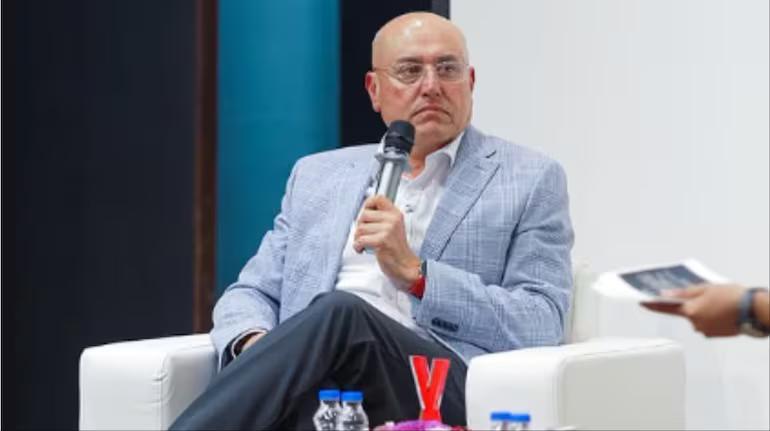
How do people tolerate this every day?: Hotmail Co-founder Sabeer on B’luru traffic
As the city of Bengaluru struggles to keep up with its rapid growth and expansion, one of its most prominent residents has let out a candid expression of frustration with the city’s notorious traffic situation. Sabeer Bhatia, the co-founder of Hotmail, has called the traffic in Bengaluru “insane” and compared it to the traffic in San Francisco’s Bay Area, where he is currently based.
In a recent post on social media, Bhatia expressed his shock and dismay at the sheer volume of traffic on Bengaluru’s roads. He noted that he rides the same distance on his bicycle in just one-third the time in the Bay Area, where he has relocated. “How do people tolerate this every day?” he asked, his tone laced with incredulity.
Bhatia’s remarks have sparked a heated debate on social media, with many Bengaluru residents sharing their own experiences of navigating the city’s congested roads. Some have expressed solidarity with Bhatia, while others have defended the city’s infrastructure and traffic management.
One entrepreneur, Akshay Shah, took to social media to react to Bhatia’s post. “We’ve to start boycotting Bengaluru,” he wrote, suggesting that the city’s residents should take a stand against the traffic situation and demand change.
So, what is driving (pun intended) Bengaluru’s traffic woes? And what can be done to alleviate the situation?
The root of the problem
Bengaluru’s traffic situation is a complex issue with multiple factors contributing to its severity. Here are a few key reasons:
- Urbanization: Bengaluru is growing at a rapid pace, with new residents and businesses moving to the city every year. This influx of people is putting pressure on the city’s infrastructure, including its roads and transportation systems.
- Lack of planning: Bengaluru’s growth has not been matched by adequate planning and infrastructure development. The city’s roads and transportation systems were not designed to handle the current volume of traffic, leading to congestion and gridlock.
- Poor traffic management: Bengaluru’s traffic management system is often criticized for being ineffective and inefficient. The city’s traffic police lack adequate resources and manpower to effectively manage traffic flow, leading to chaos and congestion on the roads.
- Private vehicles: Bengaluru has a high number of private vehicles on its roads, which is contributing to the traffic congestion. Many residents prefer to drive their own cars due to the lack of reliable public transportation options.
What can be done?
So, what can be done to alleviate Bengaluru’s traffic woes? Here are a few suggestions:
- Invest in public transportation: Bengaluru needs to invest in a reliable and efficient public transportation system. This could include expanding the city’s bus network, introducing new transportation options like bike-sharing or carpooling, and improving the city’s metro rail system.
- Improve traffic management: Bengaluru needs to improve its traffic management system to ensure that traffic flows smoothly and efficiently. This could include installing traffic cameras, improving traffic signal timings, and increasing the number of traffic police on the roads.
- Promote alternative modes of transportation: Bengaluru needs to promote alternative modes of transportation, such as cycling or walking. This could include investing in bike lanes, improving pedestrian infrastructure, and promoting car-free days or hours.
- Encourage carpooling and ride-sharing: Bengaluru needs to encourage carpooling and ride-sharing to reduce the number of private vehicles on the roads. This could include offering incentives for carpooling, such as reduced tolls or parking fees.
Conclusion
Bengaluru’s traffic situation is indeed a complex and challenging issue that requires a multi-faceted approach to solve. While Sabeer Bhatia’s remarks may have sparked a heated debate, they also highlight the need for change and improvement. By investing in public transportation, improving traffic management, promoting alternative modes of transportation, and encouraging carpooling and ride-sharing, Bengaluru can work towards a more sustainable and efficient transportation system.
Source:






